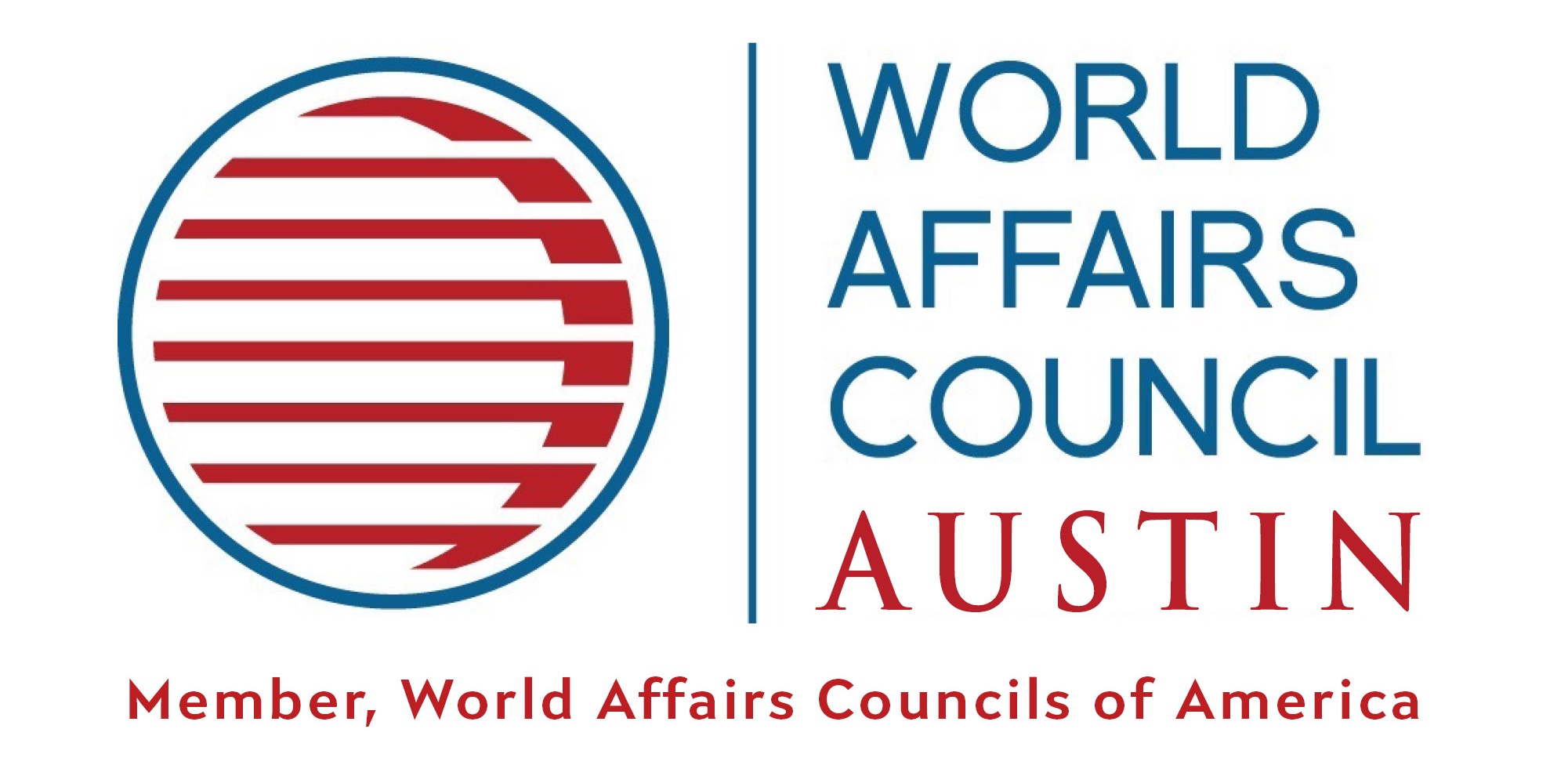World Spins: Blockchain, Trust and the Global Economy
by Raye E. Ward, WAC Austin board member
Pete Harris stopped by a session of the World Spins to share his take on blockchain, the software technology generally overshadowed by its trendier spawn, bitcoin and the Bitcoin network. Harris, who bears a striking resemblance to Bilbo Baggins, has a relationship to hype similar to mine with spreadsheets. That is, he is clear and takes sticks to the facts as he sees them. Even so, it doesn’t take long to recognize blockchain’s promise. If it’s possible to transact business based on a series of permanent (i.e. they can’t be changed), transparent interactions, then our trust-starved world may have a chance of recovering its footing.
“We’ll have to wait and see”
Harris’ blockchain CV dates from his Wall Street consulting days over a decade ago. These days, having sworn off airplanes, he spends much of his time with the Austin startup community where over 70 young cryptocompanies are tackling data integrity issues where they find them — finance, healthcare, contracts.
I watched a handful present at Harris’ Monday night meetup. They ranged from Po.et, copyright/intellectual property protection, to GovernanceChain, an accounting network and CityShare, a digital shopping/hospitality network for member cities. Among the more visible is Wanchain, a Chinese nonprofit that’s figuring out to securely connect separate smart contracts, each with its own blockchain, a pivotal step in supporting a currency-agnostic global financial network. Interestingly, Wanchain’s technology is developed in China; the company’s U.S. headquarters is in Austin.
One of the best parts of these presentations is listening to company execs say, “I don’t know,” and “We’ll have to wait and see” — something I hear very often. But I suppose that’s the beauty of a working with a nascent technology.

The blockchain network: can it build trust? Photo by Gerd Altmann via Pixabay, courtesy of Forbes
Privacy is implicit in the design
Speaking of wait-and-see, someone asked about blockchain’s impact on GDPR, the European Union’s toughened privacy requirements known as the General Data Protection Rules. With the compliance deadline looming next month, that too is a wait-and-see. But since transactions are permanent, transparent and traceable, the blockchain ledger eliminates the need for centralized control. The integrity of the information is inherent in the software design.
A peek at a mobile citizenry in a digital world
Today, 10% of the world’s GDP is in block chain. But it’s not all business. In the public sector, tiny Estonia has fashioned itself what the New Yorker magazine labelled a digital republic. Its citizens are free to live and work wherever they please while continuing to vote, maintain their health, pay taxes using digital IDs.
Curious? Here in Austin, check out the:
- Austin Blockchain Collective which Harris founded and chairs is a central gathering point for all things block chain
- Blockchain and Business meetup, a fascinating way to connect and learn more, which Harris also coordinates. It’s free, chocked full of people and information.
- McCombs School of Business Blockchain Conference Opportunities and Realities on April 13, 2018.
- Last but not least, if you haven’t already read Steven Johnson’s excellent piece about blockchain’s potential in the New York Times, read it here.
Click on the link below to access Pete Harris’ presentation to the World Affairs Council of Austin
Lighthouse Partners Will Blockchain Disrupt World Trade 3-29-18
